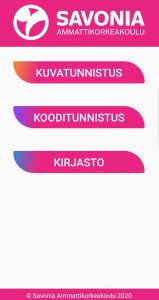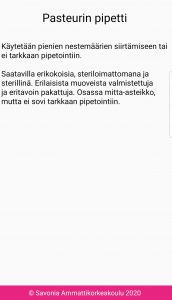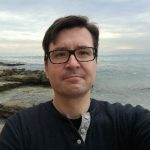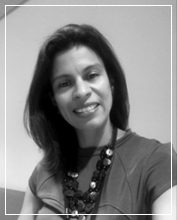Kristian Saari, elaborated an application to help in the identification of surgery and laboratory instruments as the final thesis for the Degree Programme in Information Technology of Savonia University of Applied Sciences. The work was done for the FutureEdu project in collaboration with Savonian experts and degree supervisors.


The purpose of the thesis was to create an application for social and health care students that would allow them to identify surgical and laboratory instruments. The application should also offer a comprehensive database of these instruments. The output was to be executed as an Android application that works on both mobile phones and tablets.
The application was created by using the TensorFlow machine learning framework and the Teachable Machine platform that generates machine learning models. With the help of these two, an image recognition function was created, where an object can be identified by a real-time image. This function enabled the display of instrument information in the application. Other ready-made class libraries were also utilised to build a 2D code recognition for situations where making an image is not an option. A library was also created in the application that gives the user access to all the instruments that are found in the database without an identification feature.
The result was an Android application that works on both mobile phones and tablets. The application offers teachers a good and easy-to-use tool for their work that supports both the teaching and the learning of students. It is a workable first version of an application with the following three functions: image recognition, 2D code recognition and a library. The application is not yet directly ready for users, but it must first be tested and developed further insofar as needed.
For more details (in Finnish): Surgery and Laboratory Instruments Identification


